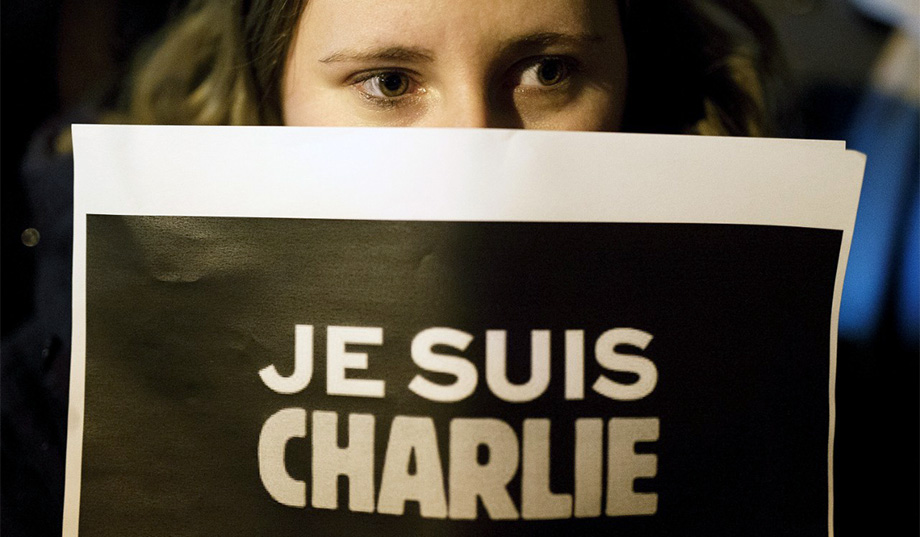A Win for the Jihadists
The Paris attack puts the Western world in a bad spot.
By Jonah Goldberg
NationalReview.com

The vigils in Paris are moving. The hashtag plumes of #JeSuisCharlie (“I am Charlie”) are endearing. The expressions of condemnation from Muslim leaders are commendable, as are the assurances of solidarity and support from Western governments.
But, as a practical matter, they don’t change a thing: The jihadists won this week.
Even if the atrocity in Paris served to imbue the civilized world — Muslim and non-Muslim alike — with a newfound resolve to battle radical Islam (it almost certainly won’t), this still stands as a victory for the bad guys.
In any war, the goal is to put your enemy in a position where he has no good options. The murderous attack on the offices of the French satirical magazine Charlie Hebdo does exactly that.
Consider the response from the Western media with regard to the Mohammed cartoons.
As a conservative, I don’t like gratuitous mockery of religion, any religion. That’s not to say I think all blasphemies are equally offensive. For instance, I think most satire of Christianity is particularly cowardly and lame precisely because Christians are such a safe target. Also, after centuries of tolerance for satire of Christianity, opportunities for cleverness or originality are few and far between.
Mockery of Islam, meanwhile, whether in good taste or not, is dangerous and therefore also courageous even when stupid.
In a world where Muslim extremists weren’t killing people for such things, I’d be against publishing such material (not as matter of law, but of editorial judgment). But we don’t live in that world. And the slaughter in Paris only makes that more of a reality.
Whereas last week, running satirical pictures of Mohammed largely made sense only as a matter of opinion journalism, it is now a requirement of news reporting — because those images are central to the story. Stéphane Charbonnier, the editor of Charlie Hebdo, and his colleagues were murdered because they ran those pictures. It’s understandable that news outlets wouldn’t want to invite similar attacks by printing or broadcasting those images. But by refusing to do so, they send a message: “We’re afraid of you.”
That’s an unequivocal win for the terrorists.
But when outlets do run the images, the radicals get to say, “See, look at their disrespect for Islam and the prophet. There can be no compromise with these infidels.”
That’s a win for the terrorists, too.
Attempts to find a middle way fall short. The New York Daily News tried to have it both ways, running a photo of Charbonnier while pixelating the issue of Charlie Hebdo he was holding so that readers couldn’t make out the satirical image of Mohammed. This “compromise” was worse than refusing to run the cartoon at all because it removed all doubt that the editors are afraid and that such attacks pay off.
This isn’t simply a meaty topic for a journalism-school seminar, it’s symbolic of the bind that we are in. Radicals always try to force crises because in a crisis, everyone must choose sides. Vladimir Lenin understood this when he followed a strategy of “the worse, the better.” No one benefits more from blanket anti-Muslim sentiment than jihadists, because such attitudes push moderate Muslims into their arms.
But that doesn’t justify the use of weasel words from Western politicians such as Barack Obama, John Kerry, and Howard Dean, who insist that Islamist terrorists aren’t Islamic, that we are merely at war with unspecified “extremists.” Well-intentioned as such statements may be, they are lies. Moreover, they are the kind of lies that breed suspicion: suspicion that our leaders don’t understand the nature of the threat, and suspicion that they are afraid of speaking the truth. These lies also invite others to believe the opposite is true, or to at least test the proposition. That in turn radicalizes yet more Muslims.
It is right and good to say we are not at war with Islam, but it is dishonest to claim that there are no Muslims waging war against us. Falling back on sanitized euphemisms is the rhetorical equivalent of pixelating Mohammed; it fools no one except fools.
A free society cannot allow freedom to be held hostage to murderers. And that is why I favor running those images of Mohammed even if some of them offend me. Moderation, tolerance, and respect are essential to a free society, but we are in a moment where moderation, tolerance, and respect are too easily confused for appeasement. And that is why the jihadists are winning. They are forcing us into only bad options. The center is not holding.
— Jonah Goldberg is a
senior editor of National
Review and a fellow at the American
Enterprise Institute. You can write to him by e-mail
at
goldbergcolumn@gmail.com or via
Twitter @JonahNRO. © 2015 Tribune Content Agency,
LLC

